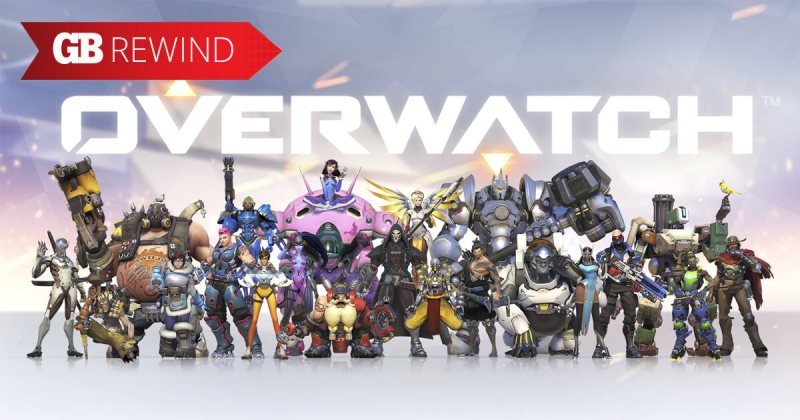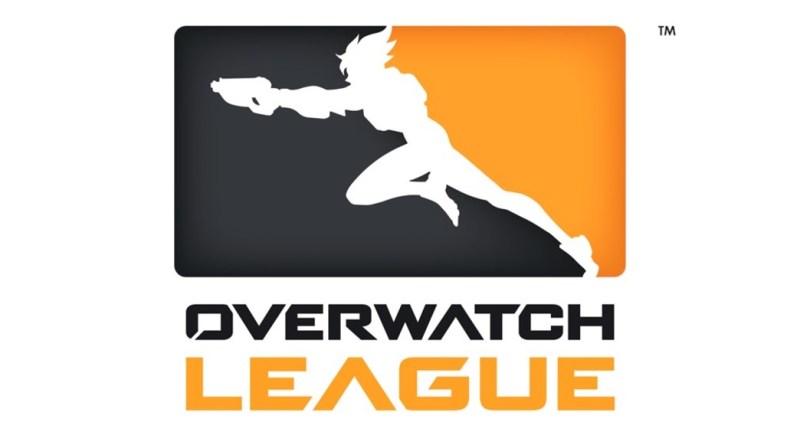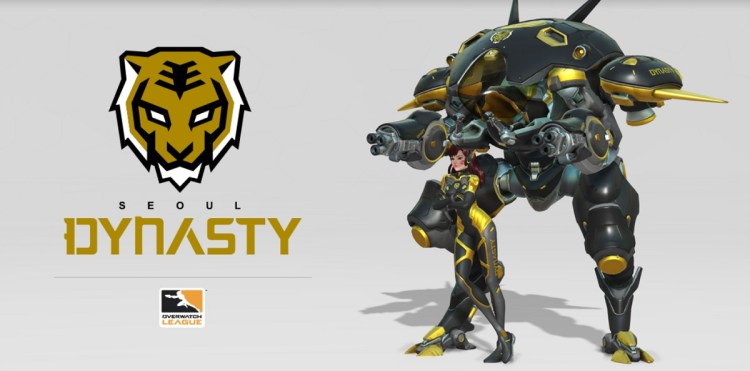testsetset
Kevin Chou is shifting gears from a mobile-gaming mogul to an esports team owner. The former CEO of Kabam sold his company — which made titles like The Hobbit: Kingdoms of Middle-earth and Marvel Contest of Champions — for nearly a billion dollars. And he took some of that payout and — along with other Kabam and industry executives — acquired a franchise for an official regional Overwatch esports team in Seoul, South Korea, for an estimated $20 million.
Time will tell if that was a good decision. Market researcher Newzoo estimates that esports will become a $1.5 billion business by 2020. But comparisons between esports and traditional sports reveal a lot of differences, and it’s not clear how soon Chou’s investment in an Overwatch team will pay off. For sure, the eyeballs are there, but esports isn’t quite monetizing as well as NBA or NFL teams.
Chou’s team is one of a dozen that Activision Blizzard’s Blizzard Entertainment has accepted for its official esports competition that kicks off on January 10. He bet on Seoul because if there’s any country in the world that has a rabid esports audience, it’s South Korea, and the country is filled with some of the top esports athletes in the world.
Chou is accustomed to taking risks. I asked him about that as I moderated a fireside chat with Chou, who is now CEO of KSV Esports International, at the Translink Capital conference last week.
June 5th: The AI Audit in NYC
Join us next week in NYC to engage with top executive leaders, delving into strategies for auditing AI models to ensure fairness, optimal performance, and ethical compliance across diverse organizations. Secure your attendance for this exclusive invite-only event.
Here’s an edited transcript of our fireside chat.

Above: Kevin Chou, CEO of KSV Esports International, at the Translink Capital event.
GamesBeat: Kevin is going to speak at our GamesBeat Summit 2018 event on April 9–10 in Berkeley. If you can’t get enough of him tonight, he’ll be speaking at our event. Kevin, can you tell us more about your background?
Kevin Chou: My background, I was a VC for about two-and-a-half years. Before that, I joined a startup as employee number 150. I went into the venture industry to learn more about what makes startups tick, what makes startups successful, and what makes startups fail, ultimately, over time. I made some digital-media investments back in 2004, 2005, and eventually started a company making Facebook games and apps. That was when I started Watercooler.
We had some ups and downs to the whole process. The 2008 period when Lehman Brothers blew up was a tough time for all of Silicon Valley and especially our business. We saw our revenues go from $3 million to $300,000 in four months. It was a very tough time. It reshaped the entire business.
We ultimately became a game company coming out of that, and renamed the company Kabam. The company went from that $300,000 to $100 million in revenue over the next three years or so. Facebook, which was our sole platform at the time, created a tax on the whole Facebook gaming ecosystem. Our revenues instantly stalled.
GamesBeat: I remember you weren’t very happy at the time.
Chou: The whole industry wasn’t very happy. Our top line stayed at $100 million, and because of that 30 percent tax, our net revenue dropped to $70 million overnight. That was a tough time. We had to reconfigure the entire business again. We went through a restructuring, and ultimately, we needed to diversify beyond Facebook. We couldn’t be a company dependent on a single platform as our sole partnership, our sole distribution channel. We all learned that the hard way in the game industry.
We started a concerted effort to build a mobile platform, build mobile games. We were one of the first developers doing free-to-play games on iOS. We had the top-grossing game on iOS for about six months, Kingdoms of Camelot. Then, we resumed our growth, going from $100 million to $400 million in revenue over the next few years.
Last year, we chose to sell the company to a South Korean company called Netmarble, and we actually broke the company up into three different parts. We sold one to Netmarble for $800 million, we sold our Facebook gaming business to a Chinese company, and we sold our R&D studio to Fox Networks. In total, that was somewhere between a $1 billion and $2 billion exit.
It was a great journey. I learned a lot, and I decided to start a new company in esports, which is basically people watching professional video gamers. We believe that esports right now is where the sports industry was maybe 20 years ago. I honestly believe, in the next 10–20 years, there will be multimillion-dollar sports teams created from the current esports landscape. That’s what we’re focused on building at KSV.

Above: The esports scene is big, but it needs to monetize better.
GamesBeat: There’s a fun fact that Newzoo found in its research on the esports industry. They noted that the NBA right now gets about three times as much money from a fan compared to the average esports fan. The NFL makes around 12 times as much money per fan, around $75 a year. It’s an indicator of where esports is at the moment. What got you excited about esports? I’m sure that some day you think this will match or exceed what the NFL takes in.
Chou: What we’re doing in esports has the opportunity to compare to what we did at Kabam. I’m excited about that. You’re right that the monetization for esports right now trails other professional sports, probably by even more than those numbers would suggest. In esports, the game publishers are also earning revenue, so the way you divide the pie is different.
If you go back in time 10 or 20 years ago, though, to when the Brooklyn Nets were sold for $200 million — now Joseph Tsai, the cofounder of Alibaba, just bought the Nets for $2.3 billion or something like that. There’s a lot of value that can be created in certain kinds of industries.
Something very special has happened in sports over the last decade or two. Media rights and globalization around sports have been phenomenal. American sports in particular have done a great job of — they’ve been very American-centric for a long time, and now, they’re going global. Right now, esports is in a fascinating place because it’s probably the most global sport — by some metrics even more so than soccer, especially in parts of Asia. When you look at the numbers — how many people watch esports versus watch the Super Bowl or the NBA Finals. It’s astonishing. Esports championships will draw three-to-five times more viewers on a global basis than the NBA Finals or World Series.
It reminds me of the early Facebook days. You have a lot of titles and nobody really knows how to monetize them yet. That was the biggest knock on Facebook early on: You have all these eyeballs on your network, but will this ever make money? In esports right now, you have the same question. A lot of eyeballs, a lot of engagement, global audiences, but will there ever be successful businesses created around that?
GamesBeat: Tell us more about KSV and what you’ll try to do with this company.
Chou: One thing that’s fascinating right now is that esports is starting to recognize — a lot of people are studying traditional sports, what’s happening with the NBA, NFL, and soccer over the last couple of decades. The thing that’s happening right now in esports is the adoption of elements that have worked really well for more traditional sports.
The Overwatch League is the first esport to come out with franchises based on geographic locations. We have the rights to operate an exclusive franchise in Seoul. The Raiders or the 49ers or the Warriors have exclusive rights in their cities for their sports.

Above: Give these people medals.
GamesBeat: To a more fundamental question, why Overwatch, as opposed to other games like League of Legends?
Chou: What’s happening right now, Activision Blizzard is a $60 billion market cap company, and they decided they were going to put an overwhelming amount of resources into esports and create a league. As a startup — if you’re just the Warriors, you can’t create the NBA by yourself. You need someone to create the NBA first. Then, you can buy a franchise for a city and base your business model around that city. Activision Blizzard created the structure for the Overwatch League, which nobody can do except for Activision Blizzard.
We came in along with Bob Kraft, who owns the Patriots, [Jeff] Wilpon, who [is the COO of the New York Mets], Stan Kroenke, who owns the Los Angeles Rams and Denver Nuggets and so on — we all came in and looked at what’s going on in this franchising system, looked at the economics and how the ownership rights would work, and we decided to buy in. We each bought different cities all around the world.
The thing about esports, and Overwatch League in particular, is that instead of just making a North American league, they wanted to take the biggest cities in the entire world and franchise those out. They have the top 32 cities in the world competing against each other in Overwatch. The thesis we have going into this business is that other esports — League of Legends and other games — are going to look at that model and say, “Hey, that has worked for the NBA and NFL. That’s what Activision Blizzard is doing.” Now, they’re starting to roll out their own franchising systems that give similar rights.
That’s why we started with Overwatch League. They created the best structure for us to buy in and be a part of the league’s growth alongside them.
GamesBeat: Why is team ownership the right way to go as an investor looking at esports? You could have invested in some other things — like platforms or other parts of the value chain. Why did you decide on owning a team?
Chou: I spent a lot of time after Kabam looking [at] a lot of new spaces. I spent a lot of time looking at health care and at all different sectors around gaming. I looked at a lot of media and technology and AI around gaming, other applications or verticals related to gaming. I looked at a lot of interesting stuff.
But one of the challenges I had, I felt like there was a lot of overinvestment in a lot of different areas. About six or seven months ago, I thought of esports as actually being a little underinvested. Not a lot of capital chasing it but a lot of eyeballs. Compare that to VR, where you had almost no eyeballs but huge amounts of capital chasing VR platforms, VR content, VR tools and technology. It’s much harder to build a business when the market’s not there, when you’re trying to convince people that there’s a market. It’s fantastic technology, fantastic promise, but the reality is that not a lot of people are using VR. The number of active, engaged people using it is not there.
In esports, I saw the opposite. You have tens of millions of people engaged in this thing, even while a lot of people scratch their heads. “Why would somebody want to watch people play video games? Is it really a sport?” A lot of people were watching it, and nobody had built a really interesting business around it yet. The underlying dynamics of the industry said that there could be some interesting businesses built there.
That was one angle, and then, the other angle ties to what I was talking about earlier. Going back 20 years, as a VC, I was always thinking, “How do I invest in something and get a billion-dollar outcome?” Twenty years ago, it wouldn’t matter which NBA or NFL team you bought into. You’d have a multi-billion-dollar outcome if you could go back 20 years and invest in a sports franchise. Those dynamics are coming into play in esports, and that’s what made me excited to get in.

Above: Iron Man character from Marvel: Contest of Champions at ChinaJoy.
GamesBeat: You’ve had good timing over the years. You raised money at the right time to get Watercooler and Kabam off the ground. You did Facebook games at a very early stage, when there weren’t any other strategy games on the platform. When Facebook cracked down, you diversified and got into mobile at the right time. You also had a good call when you stopped focusing on top-100 games and narrowed in on top-10 games. That led to Marvel: Contest of Champions. Why are you feeling the timing is good here? Is timing just as important for esports as it was for you in mobile?
Chou: Timing in esports is going to be even more pivotal. My view of any technology, any investible industry right now, is that timelines are collapsing. Before, you may have had a window of three to five years to create a digital-media company. Today, that window is much less. In sports right now, I think the window is very tiny.
What’s happening right now with the biggest games in esports — there are major franchises, potential franchises, like the Warriors or Niners or the Giants. Once all these franchises are sold, getting in becomes much harder. The only way you get into the business is to buy one from someone who already owns one. That scarcity drives up asset values. It’s a fascinating trend happening right now.
There’s also not a lot of activity happening with traditional venture capital in the space. That’s one of the things I loved about it. VCs weren’t chasing esports. At some point, the venture industry will start chasing it. In the last six months since we got started, there have been several big deals announced in esports. It’s only just beginning right now. In six-to-12 months, though, I feel like the window is going to close and all the major games will have a franchise model established.
Then, you get to a world where a business that owns multiple esports franchises in San Francisco — if you’re a new esport coming into the game, you’re probably going to want to deal with the franchise that’s already involved in League of Legends or Overwatch League to get involved in your game. There’s a big-network-effect aspect to this business. Some games may not last for the next 50 years, but the aspect of building all the infrastructure to support big tournament events, create a local fan base, create a global fan base — the window for that will only exist for a short time. You’ll have the Bob Krafts and the Jerry Joneses of esports, and that’ll be that. It won’t change.
GamesBeat: Allegedly, you assembled $20 million to acquire your Overwatch franchises. How many of these franchises do you think are worth having, whether it’s for League of Legends or other games? Just because no game lasts forever. Should you diversify beyond one game?
Chou: This is the other common knock against esports. Football will be here in 50 years. Baseball’s been around 125 years. Soccer will be around. There’s that maturity and the assurance that these sports will be with us. Right now, we’re already seeing viewership of the NFL is down, though. Viewership of MLB is way, way down. Will these sports always be there?
As entrepreneurs, as investors, what’s present — you assume these trend lines will continue going forward because these trend lines are so long. But there are always these black-swan type of events that can dramatically change how an industry works. That’s happening in sports right now, I think. One big problem with sports is that the media rights are so expensive and so restrictive — whoever pays for NFL broadcast rights, they’re going to clamp down on that. They’re going to want to restrict the ways an NFL game is watched. But that limits the way you can grow a new fan base, a younger fan base that’s using new technology and new devices to access content. It’s hard to watch an NFL game online, right? It’s incredibly restrictive.
What we see right now is that the average age of an NFL fan is going up by about half a year every year. What’s going on in baseball is even more scary. The average age of an MLB fan is going up about one year every year — for the last several years. They’re not bringing in new fans to watch these sports.
On the other side, you have esports, which is available on every device, everywhere, all over the place. That’s creating a lot of passionate engagement for a very young audience. That’s a fantastic trend. The trends in esports are phenomenal. It’s very global. The larger extrapolation for this crowd — I’m trying to peel the layers and understand what’s happening in the industry, what we can change about it, what’s the future pathway, and what are the fundamental drivers.

Above: Seoul.
GamesBeat: You have the licenses in Seoul. I’m curious about what you think as far as the difference between Silicon Valley startups and Korean startups. You’re going to be spending a lot of your time in Korea now.
Chou: I spent a lot of time in Korea this year. It’s fascinating. It’s very different from China. Kabam had an office in China, in Beijing. I could have bought the Beijing rights, actually, but I chose not to because China is such a difficult place to do business. It’s incredibly restrictive. I’m Chinese-American and speak Mandarin, but I still need a translator to do business there. Everyone’s been focused on breaking into China for a long time, and you can do some business there. I remember getting $4 million or $5 million in revenue out of China, the largest market in the world. It’s so hard to break into China and make it work. So I decided not to do this new sports franchise in China for a lot of reasons.
We also had an office in Korea, a smaller office, but it was much, much easier for us to business there. The government, the geopolitical aspects of Korea — what’s happening in the North notwithstanding — South Korea is a great environment for entrepreneurs and business.
The tough part about Korea is that there’s no venture-capital market in Korea. Or, there’s a little bit, but not a lot, comparatively. But there are so many interesting global opportunities. Translink and others have focused a lot on China, on Silicon Valley, on a lot of these other large and talented metropolitan areas in the world. The innovation is absolutely there. I’ve been fascinated.
We’ve been able to find great talent in Korea. The nice thing about it is that, unlike Silicon Valley, where we’re competing for engineers straight out of Stanford and paying them a quarter-million dollars — the engineering costs in Korea — we can get fantastically talented, hardworking engineers for 20 or 30 percent of what they would cost here in Silicon Valley. That’s been fantastic.
The one challenge in Korea, because there hasn’t been that large history of venture capital and an ecosystem of startups and lawyers and investors, it’s very difficult to find management talent that has experience taking a ground-zero startup and building that up. The talent required to join a company that doesn’t have revenue yet, that’s really just a business plan — that experience in Korea is definitely in short supply. But I’m happy about operating in Korea. It’s been a fantastic learning experience for us.
GamesBeat: We have a lot of people from outside of gaming here. What do you think are the broader major investible trends, whether it’s in gaming or beyond gaming, in media and entertainment?
Chou: One of the most fascinating areas that I’ve spent a lot of time with is AI. A lot of AI is being created out of the gaming world. You have what Google is doing with Go, which started with building AI to master chess and so forth. Autonomous driving — I can’t remember the exact number, but there was a company that tested their autonomous driving software using Grand Theft Auto because the virtual world was so realistic that they could use it to test algorithms for autonomous driving and a lot of accessories to that technology. Many interesting applications are coming out of AI right now. Some really complex software engineering is happening in the gaming world. That’s a ripe area.
GamesBeat: I was thinking that this notion of a leisure economy is going to get bigger and bigger. The idea that, just like in esports, people are going to get paid to play games. I’ve been a journalist covering games for 20 years. You could argue that I get paid to play games. I could probably put on a pretty good comedy show about how bad I am at playing games.
Chou: You already did that [laughs].

Above: The Forest Follies level in Cuphead.
GamesBeat: If you look into the future and project along that investment trend, what do you foresee there? How many of us are going to make a living playing games?
Chou: I was having a conversation with one of the investors at Alibaba in China. They invested in Kabam. We were catching up, and he has this thesis related to just what you’re saying, which is that between robotics, AI, and all these different technologies in things like food production, the number of people that will be displaced, put out of work, is going to dramatically increase in China. I thought that was fascinating when you consider that China is also the fastest-growing audience in the world.
He was talking about how, right now, the gig economy — whether you’re driving for Uber or selling on Alibaba’s platform or whatever — a lot of people have turned that into their full-time jobs or side jobs. This is absolutely going to be a significant trend, where people aren’t working a nine-to-five job anymore. In some cases, they may not be working at all. So, are we going to have an economy where you can meet the needs of the entire population with a smaller fraction of the population working? That’s probably why they’re buying up sports teams. They’re buying up movie-production studios. They’re very focused on investing ahead of more people having more leisure time.
Esports is part of that trend in investment. Tencent has come out and talked about how they’re investing in esports right now. There’s a lot of focus on esports as an interesting part of this gig economy. Another fun fact, the number one streamer in the world — somebody who plays video games and basically [talks] into a webcam while people watch them play — this person makes more than $10 million a year doing this.
GamesBeat: I’ve heard some people talk down this opportunity, though, arguing that a person like that is just a celebrity. Someone like that is one in a million. The idea that millions of people could make their living this way might not be so realistic.
Chou: At the very top, maybe. If the number one person can make $10 million a year, though, can a bunch of people make $10,000? If a number of people can exist in that $10,000 to $20,000 range, maybe they can have an OK life? I don’t know. But there’s certainly a lot of money in it. The more you can grab attention and eyeballs, there’s always been a business in that, as long as radio or television have been around. It’s just happening in a very different fashion today.
Gaming is truly becoming a universal activity. The number of people who play games actively now spans a very broad range of demographics. The esports demographic skews younger because it takes a lot of time to get into esports, the more hardcore side of the gaming spectrum. But I do think that there is going to be more and more of a leisure economy in different fields that [caters] to that and [helps] people make a living. Whether it’s an aspiring esports player who can’t quite make it at a super pro level but makes a living streaming, entertaining, practicing, making [$20,000–$30,000] a year — a lot of people play AAA baseball and live that life. The number of people playing video games and making that level of money will be far more than the people who play AAA baseball.
GamesBeat: Are you going to be prepared in five years to pay your Overwatch players $10 million each?
Chou: We’ll see. At the end of the day, if we’re making $50 million from that player, absolutely.
GamesBeat: If you look back at where mobile gaming is right now, the industry you left behind, what are some of the observations you might have from a more neutral perspective? Candy Crush Saga returned to number one in the app stores in the U.S. today, which was an interesting development. Machine Zone’s games are no longer in contention.
Chou: I think the biggest change in gaming in all of 2017 has come out of Korea, actually. There’s a venture-backed company in Korea called Bluehole. They make a game called PlayerUnknown’s Battlegrounds — or PUBG for short. It’s a fascinating company. Rumors are flying around from several very credible sources that it’s become a $5 billion company in, essentially, a year, although they’ve been around a long time before that. It’s one of the most fascinating wealth-creation stories that’s happened in a very long time. This is happening on the PC. Everyone has been talking about mobile as the next platform or similar devices, but this is a company that makes a traditional PC game, and it’s gone from zero to more than 20 million sales of this game since March.
I think that could be possible on mobile in the future. India just overtook the U.S. in terms of annual smartphone sales. It’s just coming online right now with a very large percentage of the population using apps and hooking up their payment systems to devices for the first time. It’s a massive market coming online of people with a very powerful computer in their pocket that play games and do many other things. Again, the timeline for everything is compressing. The ability to build equity, if you get everything lined up just right, will be there.
GamesBeat: Do you think you got out of mobile at the wrong time, then?
Chou: After 10 years of running a company, I was fine taking a bit of a break. The mobile-game industry runs at a faster pace than most other industries I’ve known. I’m glad I got out because it really takes a lot to compete there successfully over a long time.

Above: PlayerUnknown’s Battlegrounds in action.
Question: The success of PUBG has shown that the market for online games can change very quickly. Do you worry about that, given your investment in the Overwatch franchise?
Chou: Obviously, none of the owners know that we’re absolutely going to make money. But there’s a perception around the games industry that games only last a very short amount of time, that it’s kind of like fashion. Something’s hot this year, and next year, it’s not so hot anymore. That’s often been true because there are so many games that come out. Thousands of games come out every year. Most of them never get hot. Some of them get hot, and then, they’re gone very quickly.
But there are a few games that have been around now for a very long time. Counter-Strike is probably the most interesting example. That’s been around for 17 years. The usage and engagement patterns around that game are still near an all-time high. League of Legends has been around for 10 years now, and it’s still at an all-time high or maybe just a little bit off the all-time peak.
My belief is that, first of all, we’re still understanding what an esport is. Nobody knew how to create an esport 10 years ago. Even five years ago, the knowledge — if I were at Kabam trying to an assemble a team to make a great esports game, it would be very difficult to find the right talent to do that. But now, over the last two or three years, people have been studying what makes an esports game last for 10 years like League of Legends. What’s made Counter-Strike run for 17 years now? There are some very talented people who’ve looked at this problem with a lot of great data for a number of years now, and they’re creating the next generation of esports.
We’re right at the cusp with some very talented teams who know exactly what they’re doing. They’ve started with a very large base of capital, and they’re heavily focused on esports, on the problem of how to make these games run for 10, 20, 30 years. That’s what we’re all shooting for in this industry. We’re not necessarily going to create soccer, which will be around for 100 years from now, but I don’t think we need to. We need to create something that’s going to capture people’s interest and attention for a decade or two.

Above: Overwatch League.
Question: What’s the maturity of the economics of the Overwatch League? As a franchise, do you participate in revenue sharing, profit sharing, merchandise? Can you talk more about that?
Chou: The Overwatch League is a bit unusual. Unfortunately, I can’t talk about all the ins and outs, but basically, they hired the president of ESPN and various people from the NBA and NFL to run the league. It’s structured very similar to the NBA. We’re focused as a league and as team owners on media rights — not just national media rights but global media rights.
One of the pieces is, if you [go] back to traditional sports, CBS, Fox, ABC, ESPN, they made these sports what they are — with exposure and promotion. What’s the equivalent of that as we go into a digital world? It’s Facebook. It’s Amazon. It’s YouTube and Google. Those big three tech companies are building out large media platforms that span the entire world. What’s going to be the most interesting and most sought-after content on these platforms? Twenty percent of YouTube’s traffic right now is gaming, and esports is a very rapidly growing part of content consumption on a worldwide basis.
Part of the thesis is, esports content becomes more exclusive, becomes valuable through scarcity. There are formalized leagues. You either get the rights for the next three years or you go somewhere else. There’s no other way to get Overwatch content besides negotiating with the league and the owners. The media rights will be structured in a way similar to how American sports and the EPL have structured their rights over the last several turns. And in the way merchandise works, the Overwatch League is modeled in a way very similar to the NBA and NFL.
We’re trying to step outside of having these incredibly expensive television rights where it’s hard for someone to access the game on their phone or their computer. We’re taking the perspective where we want everyone, on any device, everywhere in the world to be able to watch a game in a pretty simple fashion. We’re making a bet that over the next 10 years, the Facebooks and Googles and Amazons of the world are going to become what CBS and ABC and NBC were in the past.


